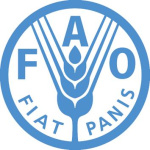- Industry: Agriculture
- Number of terms: 87409
- Number of blossaries: 0
- Company Profile:
Established in October 1945 with the objective of eliminating hunger and improving nutrition and standards of living by increasing agricultural productivity, FAO coordinates the efforts of governments and technical agencies in programs for developing agriculture, forestry, fisheries, and land and ...
The integration period of juvenile and reproductive stages of growth.
Industry:Biotechnology
The intensity of selection acting on a population of organisms or cells in culture. Its effectiveness is measured in terms of differential survival and reproduction, and consequently in change in the frequency of alleles in a population.
Industry:Biotechnology
The interaction of two or more dissimilar organisms where the association is advantageous to one without affecting the other(s). <i>cf</i> parasitism; symbiosis.
Industry:Biotechnology
The internal layer of cells of the gastrula, which will develop into the alimentary canal (gut) and digestive glands of the adult.
Industry:Biotechnology
The interval between the beginning of consecutive divisions of a cell. The time that it takes for a population of single-celled organisms to double its cell number. Successive generations of cells or organisms within a population are separated by a time interval called generation time. The cell regeneration time can be determined with the aid of time-lapse microcinematography.
Industry:Biotechnology
The intrinsic density which a molecule, virus or sub-cellular particle has when suspended in an aqueous solution of a salt, such as CsCl, or a sugar, such as sucrose. DNA from different species has a characteristic buoyant density, which reflects the proportion of G=C base pairs. The greater the proportion of G=C, the greater the buoyant density of the DNA.
Industry:Biotechnology
The introduction of a gene or genes into animal or plant cells, which leads to the transmission of the input gene (transgene) to successive generations. <i>cf</i> transfection.
Industry:Biotechnology
The introduction of a radioactive atom at the end of a DNA or RNA molecule. A commonly used method is to use T4 polynucleotide kinase to introduce a <sup>32</sup>P atom onto the end of a DNA molecule.
Industry:Biotechnology
The introduction of base changes - mutations - into a piece of DNA at a specific site, using recombinant DNA methods.
Industry:Biotechnology
The introduction of new gene(s) into a population by crossing between two populations, followed by repeated backcrossing to that population while retaining the new gene(s).
Industry:Biotechnology
